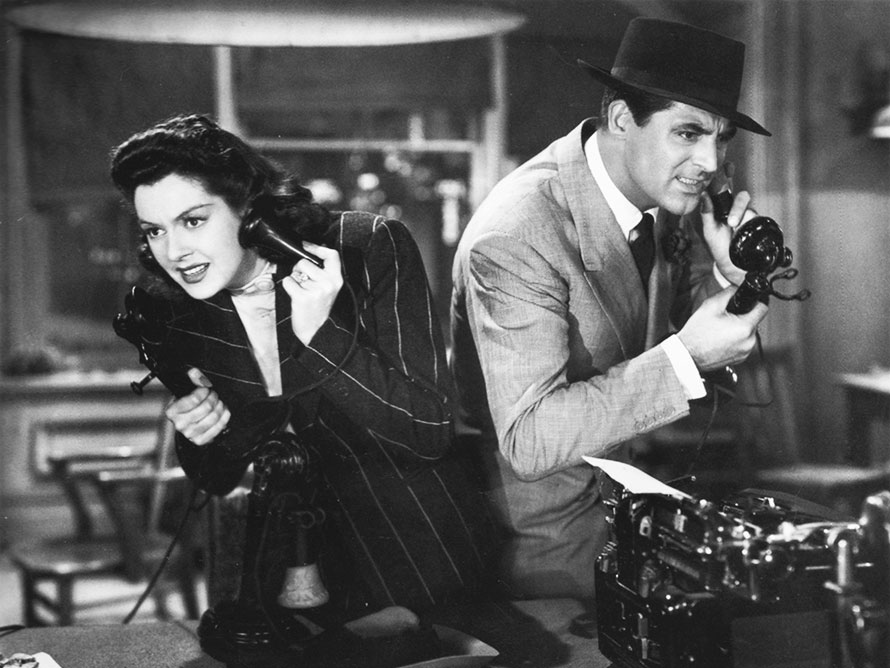Is it time to return to the old-fashioned phone call? People trying to keep cheerful during the lockdown are rediscovering the joy of hours spent on the line to friends and relations.
Hello – this is your long-forgotten friend
Is it time to return to the old-fashioned phone call? People trying to keep cheerful during the lockdown are rediscovering the joy of hours spent on the line to friends and relations.
"Mr Watson, come here - I want you." It was hardly the most exciting sentence ever, but it was one that changed the world.
By summoning his assistant with these words on 10 March 1876, the Scottish-born inventor Alexander Graham Bell made the first successful telephone call. Watson was just 100 feet away but, within two years, Bell's system had a reach of over 100 miles.
To begin with, the telephone was not seen as a serious competitor to the telegram - an already established way of sending written messages over long distances. The idea of someone ringing up and demanding to talk to you in your own home felt like an intrusion. And the postal system was so efficient, with local letters delivered the day they were sent, that many felt the telephone was unnecessary.
But people gradually fell in love with the phone, for both personal calls and business. Teenagers, in particular, became famous for spending every moment they could chatting to their friends. Long-distance connections were often poor, but to hear a loved one's voice even for a few minutes felt like a precious gift.
Then other types of communication came to the fore.
"Until the pandemic arrived, many of us were finding texting, email, and Whatsapp more suitable to our speeded-up lives," the psychotherapist Susie Orbach writes in the Guardian. "But now we are coming to reuse the telephone, and to enjoy the sounds in our ears and the rhythm of conversation, instead of feeling rushed and interrupted."
For many, being able to see the person they are talking to on screen is just a distraction - they would much rather focus on the voice. The mobile network EE reports that the average length of a phone call has doubled since the start of the pandemic, from four minutes to eight.
Phones have played an important part in history. A call from John F Kennedy offering support for Martin Luther KingThe civil rights leader was shot dead in Tennessee in 1968. , who had been arrested after a sit-in, is thought to have played a vital role in Kennedy's presidential campaign. Following the Cuban missile crisis, Kennedy had a hotline set up between the White HouseThe official residence of the US president, in Washington DC. Burnt by British troops in 1814, it was rebuilt and painted white to hide the smoke stains. and the KremlinA central fortress in a city, used to refer to a complex in Moscow with five palaces and four cathedrals. The Russian government is run from within this citadel. so that US and Russian leaders could communicate immediately in times of emergency.
Is it time to return to the old-fashioned phone call?
No. Some say that the phone is an inefficient means of communication. Conversations last longer than necessary because people feel they have to spend time on niceties, such as asking how the other person is. With a text or email, you can just give or ask for the necessary information. And some health experts believe that holding a mobile to your ear for too long is bad for you.
Yes. Communication is not just about exchanging information - it is also about building relationships. A phone conversation gives you a chance to get to know somebody, and it is precisely by chatting about
peripheral things that you can form an idea of them as a human being rather than just a contact. You can often remember someone's voice more clearly than their physical appearance.
Keywords
Martin Luther King - The civil rights leader was shot dead in Tennessee in 1968.
White House - The official residence of the US president, in Washington DC. Burnt by British troops in 1814, it was rebuilt and painted white to hide the smoke stains.
Kremlin - A central fortress in a city, used to refer to a complex in Moscow with five palaces and four cathedrals. The Russian government is run from within this citadel.
Hello – this is your long-forgotten friend

Glossary
Martin Luther King - The civil rights leader was shot dead in Tennessee in 1968.
White House - The official residence of the US president, in Washington DC. Burnt by British troops in 1814, it was rebuilt and painted white to hide the smoke stains.
Kremlin - A central fortress in a city, used to refer to a complex in Moscow with five palaces and four cathedrals. The Russian government is run from within this citadel.
